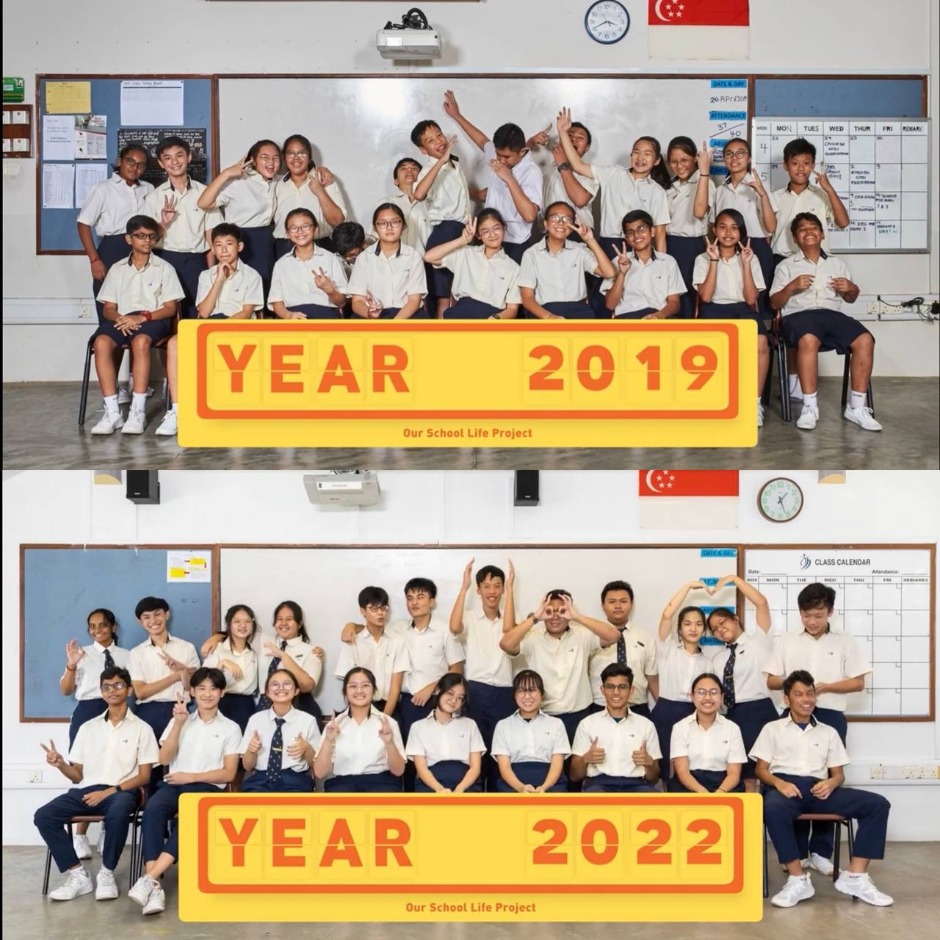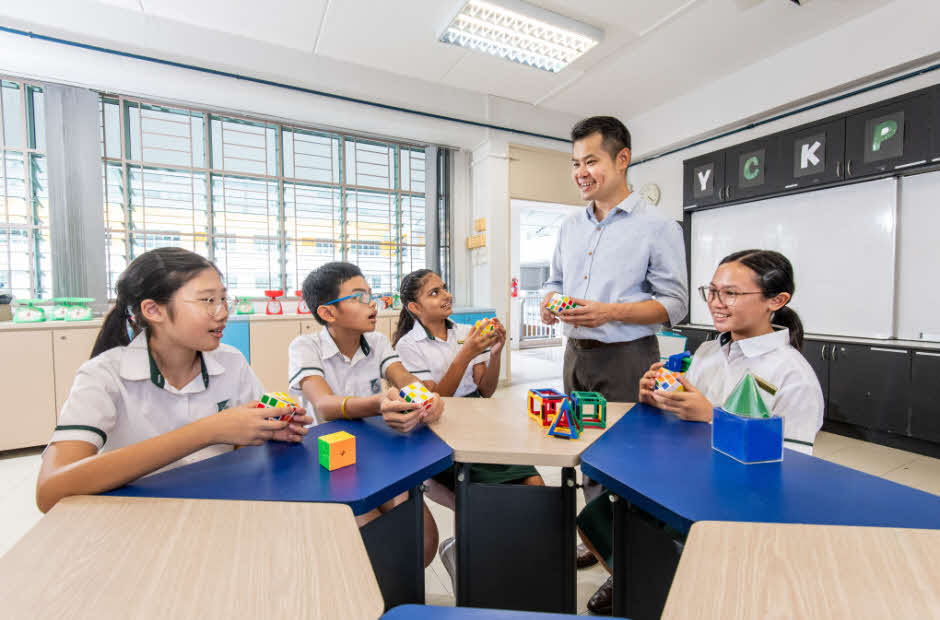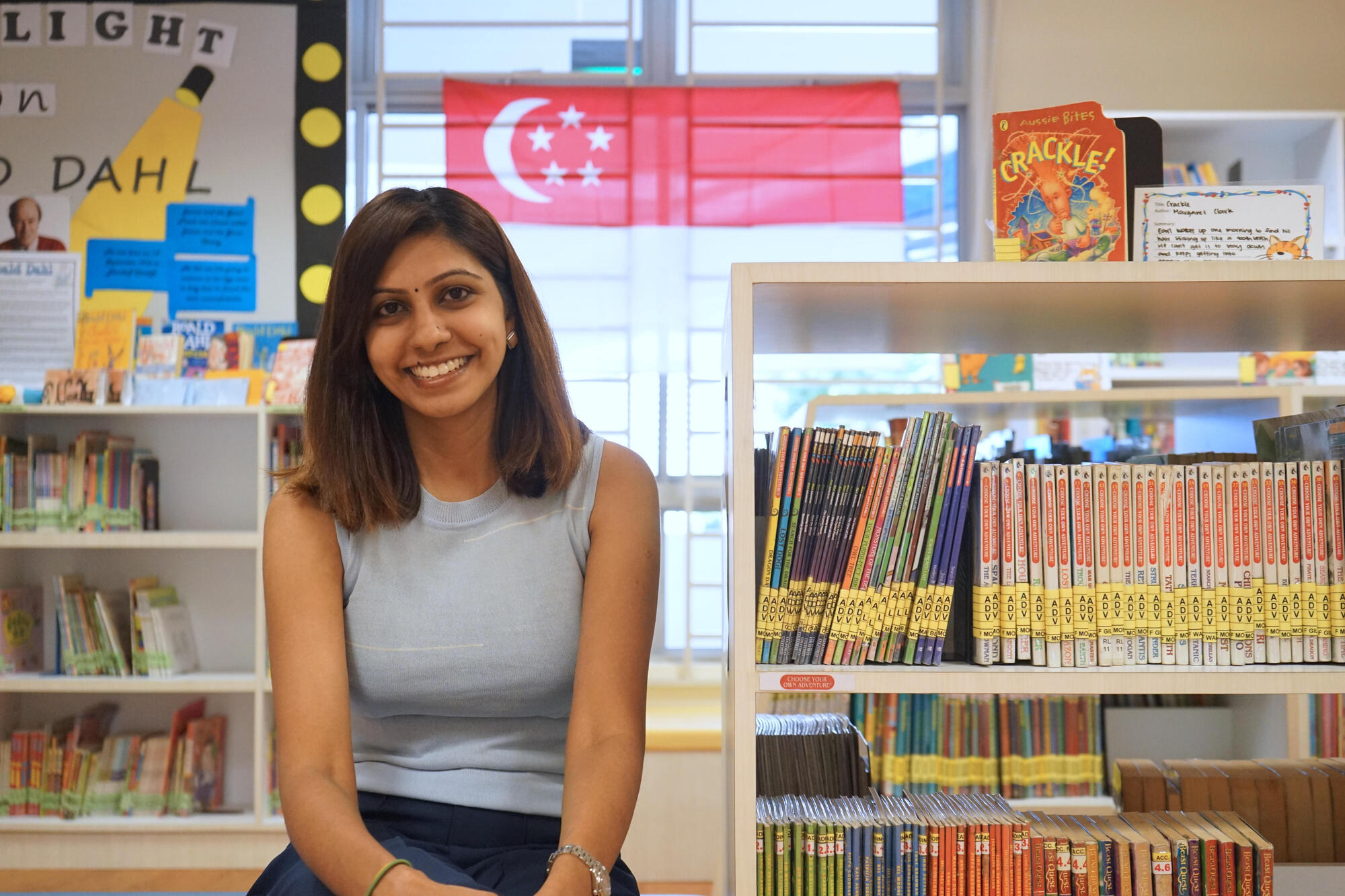Wong Bing Sum, Radin Mas Primary, President’s Award for Teachers 2020 Recipient
Should Animals be Kept in the Zoo?
It was the day after the Radin Mas Primary 4 Camp at the Singapore Zoo. As students pondered over the question during their English Language lesson, they were presented with choices. They could answer the question by writing an essay, giving a presentation or acting out a script.
This approach is the TriMind strategy, which recognises that students can be Creative, Practical or Analytical learners.
“I provide students with tasks that are centred around the same learning goals, but designed for the different intelligence strengths. This way, students can learn more efficiently and successfully,” said Bing Sum.
“It also gives students more options. With the autonomy to decide on learning tasks, students’ motivation to learn can be enhanced,” she added.
The students loved it. One group created board games and dioramas using recyclable materials; another made drawings of animals and their habitats; and another group engaged in vibrant discussions on the pros and cons of keeping animals in captivity.
Words that work
With Bing Sum’s lesson design, language learning comes to life in unusual ways.
During a camp organised by the Physical Education Department, students participated in a ‘Caving’ experience. They were placed in a pitch-dark room and had to find a way out collaboratively. When students shared how scared they felt, Bing Sum tapped on this experience to get students to think of what life is like for the visually impaired.
One student wrote, “I have learnt to respect the blind more after the Caving experience. I realised that it was not easy not being able to use my sense of sight. I needed to rely on and use more of my other senses to help me overcome the many obstacles I faced as a blind person.”
And it didn’t stop at just empathy. Students researched on ways to help the blind and then write up their ideas.
Again, students exercised their autonomy to decide on their learning tasks. They had the option to write a proposal to the Town Council on how to improve neighbourhood facilities for the visually impaired, produce an account of their experience for someone they know, or create an instructional text on interacting with a visually impaired person.
Students’ responses were then published in a series of e-books which were read to an audience at Clementi Public Library. This was followed by a question-and-answer session for students to engage the audience – sharpening students’ public speaking skills.
The students applied their language and communication skills in an authentic context to meet a real-world need.
Students in charge
So, how does Bing Sum keep her students engaged? It starts with an ‘interest’ survey with her students, she said.
Last year, her students said that they enjoyed listening to personal stories. So, she shared about her childhood – how she lived with her grandmother, who kept chickens, ducks, dogs and cats, and how she rescued a kitten.
“When I incorporated these stories into the learning activities, and gave students options in pre-writing activities, their motivation to write increased. Not only that, they showed an improvement in idea generation for composition writing,” said Bing Sum.
This year, students said they enjoyed watching videos, playing games and working in groups. So, she made sure that her lessons included these aspects, supported by sound pedagogy.
“I will only succeed if I know how to teach the way my students learn and remember,” she said.
Such was her interest in better understanding how students learn that in 2019, she led a multidisciplinary team of teachers on an inquiry project to enhance students’ motivation to learn. The project required the analysis of student work and survey data.
“The goal is to make learning accessible, especially to low-progress students, through differentiated lesson plans and teaching methods. Helping these students experience success in school is very fulfilling for me.”
But first, Bing Sum had to sharpen her data analysis skills. She ploughed through manuals on analysing quantitative data. It was a struggle that made her empathise with her students. “I could experience how they felt when they could not understand how to do their work.”
Bing Sum moved on to video tutorials, which worked much better for her. “This only made me realise again how important it is to differentiate instruction for effective learning.”
What came out of this struggle were key insights. For example, a Science Teacher discovered that giving his students a choice in task structure, which was working independently versus in groups, did little to motivate them. However, when students had options in selecting learning tasks, their motivation to learn soared.
Stories stick
Bing Sum has initiated other activities to keep students motivated.
There’s “Story Time!” – a mini storytelling session as a reward if students finish their work on time. Bing Sum uses this to incentivise students to stay on task and cultivate self-regulation.
There’s a series of videos featuring puppets, Lambie and Lioness. This came in handy when schools went into Full Home-Based Learning (FHBL) during the COVID-19 pandemic.
“These videos helped me to stay engaged with my students. For instance, in one video, Lambie explained why students need to eat healthily during FHBL. A couple of videos would have Lambie answering questions that students may have on a particular topic. In the process, I also created a ‘personality’ for each of my class puppets, which I used to teach Characterisation for writing,” she said.
Lambie was an instant hit. Students’ responded warmly to them, writing things like:
“Hi Lambie! Yes, I am keeping safe and doing my work on time with 100% effort. I have already uploaded my CW3 to the file. Hope you like it!”
“I uploaded CW3 and I’m very healthy. Thank you for caring about us, Lambie!”
Bing Sum describes herself as a learning designer.
“The greatest power I have as a teacher is endless influence,” she says with a smile. “I hope I can continue to inspire students to achieve their best self.”



.jpg)


